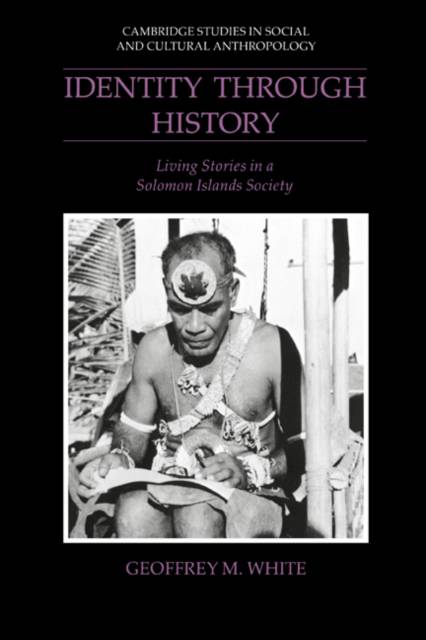
- Afhalen na 1 uur in een winkel met voorraad
- Gratis thuislevering in België vanaf € 30
- Ruim aanbod met 7 miljoen producten
- Afhalen na 1 uur in een winkel met voorraad
- Gratis thuislevering in België vanaf € 30
- Ruim aanbod met 7 miljoen producten
Zoeken
€ 74,95
+ 149 punten
Uitvoering
Omschrijving
For people who live in small communities transformed by powerful outside forces, narrative accounts of culture contact and change create images of collective identity through the idiom of shared history. How may we understand the processes that make such accounts compelling for those who tell them? Why do some narratives acquire a kind of mythic status as they are told and retold in a variety of contexts and genres? Identity Through History attempts to explain how identity formation developed among the people of Santa Isabel in the Solomon Islands who were victimized by raiding headhunters in the nineteenth century, and then embraced Christianity around the turn of the century. Making innovative use of work in psychological and historical anthropology, Geoffrey White shows how these significant events were crucial to the community's view of itself in shifting social and political circumstances.
Specificaties
Betrokkenen
- Auteur(s):
- Uitgeverij:
Inhoud
- Aantal bladzijden:
- 292
- Taal:
- Engels
- Reeks:
- Reeksnummer:
- nr. 83
Eigenschappen
- Productcode (EAN):
- 9780521533324
- Verschijningsdatum:
- 13/02/2003
- Uitvoering:
- Paperback
- Formaat:
- Trade paperback (VS)
- Afmetingen:
- 154 mm x 228 mm
- Gewicht:
- 430 g

Alleen bij Standaard Boekhandel
+ 149 punten op je klantenkaart van Standaard Boekhandel
Beoordelingen
We publiceren alleen reviews die voldoen aan de voorwaarden voor reviews. Bekijk onze voorwaarden voor reviews.











